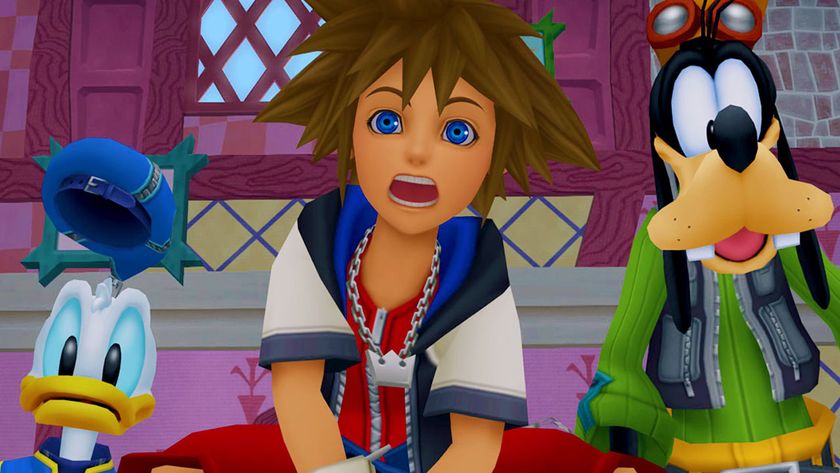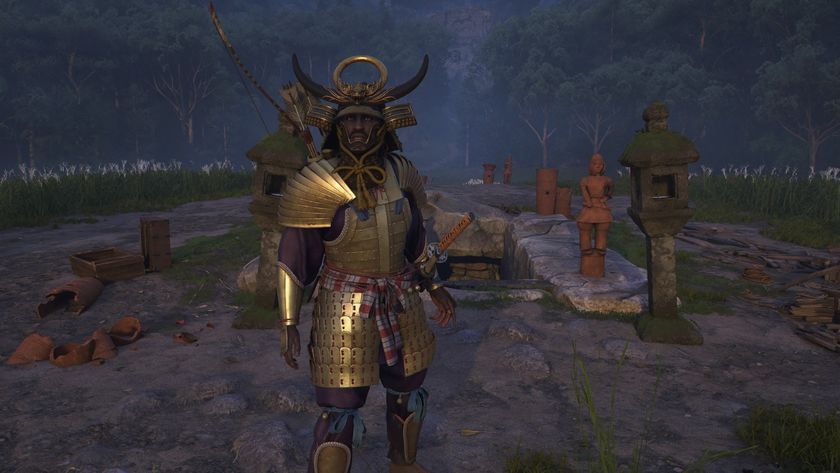Fable 2
After three hours with Lionhead's sequel, we tell you why Peter Molyneux might really, finally have cracked it this time
Peter Molyneux may be notorious for vaunting every new game as his eventual masterpiece, but Fable 2 has always been a game with a hell of a lot of potential. An RPG with a killer central concept in its reputation system, its mission seems to be to crank up everything that fans loved about the original game to the next level, and allow freedom of character development to truly blossom in an open-world environment.
But does it work? Is Fable 2 truly the game that Molyneux has been threatening for so many years? After a recent three hour play test, we think that there's every chance it will be. Here's why.
It's adult without being angsty
By now we're used to RPGs - and videogames in general - being sold as mature and emotional, but nine times out of ten what we actually get is the exact opposite. A load of adolescent moping, topped off with some "dark and gritty" (read: ridiculous and contrived) 'drama' if we're lucky.
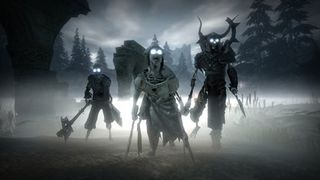
Fable 2 doesn't do that. Instead, it manages to pull off the mythical feat of existing in a convincingly multi-faceted world where dark and adult things happen without ruling the entire tone. So while you will come across some seriously dark themes - indeed, a rather unpleasant throwaway conversation near the beginning of the game actually managed to make us feel really uncomfortable - Fable 2 seems to present that sort of material just as it happens in real life. Some really horrible things happen and need to be addressed, but they're just one aspect of a vibrant, living world. Dark material is all the more emotionally affecting when we're not being desensitised to it with constant emo histrionics, and Fable 2 understands that.
It's genuinely funny
On the flip-side of Fable 2's much more believable take on RPG worlds, it's seriously, laugh-out-loud funny. And again, the strength of that tone in no way unbalances things. In fact, once again it actually serves to increase the realism. Real life is, after all, a very funny place. Whether it's through intentional comedy, unintentional quirks of character or just bog-standard self-effacing mockery of the crap we have to go through every day, people are being funny all the time. Fable 2's tone reflects that brilliantly.
Sign up to the GamesRadar+ Newsletter
Weekly digests, tales from the communities you love, and more
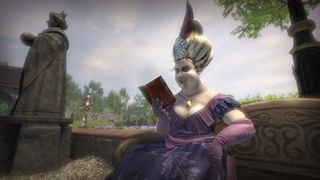
Where the humour in many games feels forced or is reserved for cut-scene set-pieces, in Fable 2 it's everywhere. Walking through any decent-sized town, the seemingly endlessly overheard snippets of its inhabitants' conversations will provide you with more than a few giggles - we played for three hours and we don't recall hearing the same dialogue twice. Characters are amusing not because they've been written as "the light relief", but because they're packed with genuine personality. And even in the game's menus, almost every item description we came across raised a smile or a laugh, each one either directly mocking the object it related to or providing a mirthsome anecdote about its history.
All of that is backed up by a brilliant, often big-name voice cast hand-picked from the current British comedy scene, comprising members of the League Of Gentlemen, the Gavin And Stacey cast, and later on, Stephen Fry. You hear that? Stephen Fry is in the game! Do you need us to give you one more reason to play it? No, we didn't think so, but we'll give you several anyway.
It's uniquely, believably European
You only realise how American or Japanese the games we've been playing are when you get a chance to play something different. It's not just the country of origin which dictates a game's feel. The sheer historical dominance of those two markets in the games industry over recent years has dictated that even games from Europe have taken on a similar, homogenised feel. Not so with Fable 2.
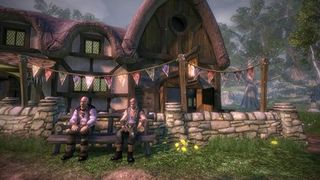
From the very start, it's clear that this is a game from the old country. Where most RPGs are bogged down in generic sword and sorcery or industrial sci-fi and androgyny, Fable 2 feels like the fantasy game Terry Gilliam and Guillermo Del Toro would make if given half a chance (Yes, we know Gilliam was born in America and Del Toro is Mexican but, well... Ignore the technicalities, just go with the style and tone).
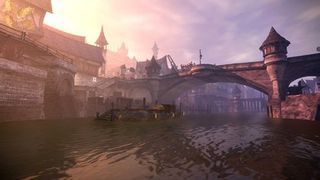
The cities have a beautiful tumbledown design, like the buildings have been taken out of the oven too soon and started to collapse. The overall style includes all manner of rural delights, evoking an authentic Grimm's fairy tale world made up of a cherry-picked selection of historical European aesthetics. There's no shiny, idealised medieval fantasy here. This is an earthy, lived-in world, just as beautiful for its imperfections as its stunning, sunset vistas. If you've ever watched Monty Python And The Holy Grail or read one of Terry Pratchett's Discworld novels, you'll feel right at home in Fable 2. European gamers will lap up the opportunity to play through the kind of world we visited in the folk-tales of our youth, while everyone else will just find it very, very refreshing indeed.

